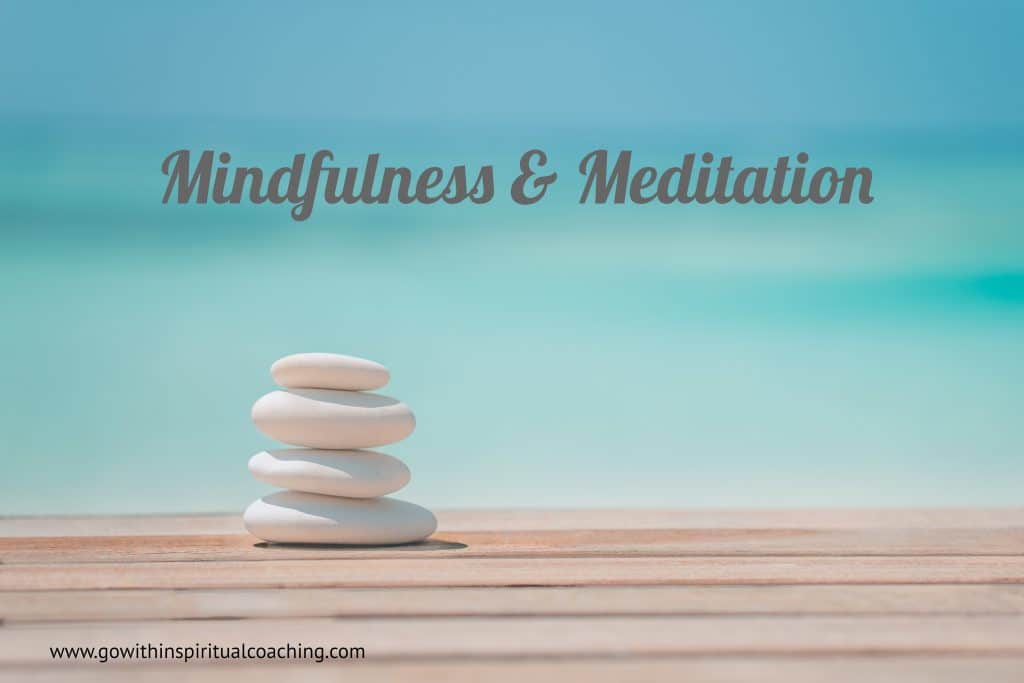
Mindfulness & Meditation: The Differences, Benefits, and How-To’s
Mindfulness and meditation embody many similarities and can overlap, but they are not the same. Here’s a closer look:
MEDITATION
Meditation typically refers to formal, seated meditation practice. There are many types of meditation—those that focus on opening your heart, expanding your awareness, calming your mind, experiencing inner peace, and the list goes on. Here are some examples:
- Mindfulness meditation
- Loving-kindness meditation
- Breath-awareness meditation
- Body scan or progressive relaxation
- Mantra-based meditation
- Visualization meditation
- Guided meditation
Meditation is an intentional practice where you focus inward to increase calmness, concentration, and emotional balance. It is all about letting go. You cultivate the power of surrender. That gives your body deep rest, and with it, the ability to heal itself. 
Benefits
Here are several scientifically proven ways meditation rewires your brain for happiness, peace, and success:
- Meditation Reduces Stress Through Relaxation – The Harvard Medical School has been one of the pioneers in scientific studies of the benefits and healing impact of meditation. Relaxation can change our body’s chemistry, balancing the body to its natural state with no stress or agitation.
- Meditation Improves Focus – Research shows that meditation improves cognition and increases your ability to performs tasks requiring focus.
- Meditation Improves Relationships – It improves your ability to empathize, and it hones your ability to pick up on cues indicating how others are feeling. Meditation also increases your emotional stability, making you less likely to be influenced by any negative people in your life.
- Control of Emotions, Less Agitation – Meditation and being focused in your mind can help you better control emotions. A relaxed mindset leads to less anxiety and reduces the intensity of mood swings and anger episodes.
- Meditation Increase Your Sense of Well-Being – Mindfulness meditation increases your psychological functioning and, in the process, improves your sense of well-being. Yoga and tai-chi have been found to do this also.
MINDFULNESS
Mindfulness is all about being aware, which of course, includes the practice of meditation. It’s noticing and paying attention to thoughts, feelings, behavior, and everything else. We can practice mindfulness at any time, wherever we are, whoever we are with, and whatever we are doing by showing up and being fully engaged in the here and now.
Mindfulness also releases ‘happy’ chemicals in the brain; it lowers blood pressure, improves digestion, and relaxes tension around pain. It is simple to practice and wonderful in effect.
Mindfulness and meditation are mirror-like reflections; mindfulness supports and enriches meditation, while meditation nurtures and expands mindfulness. While you can apply mindfulness to any situation throughout the day, meditation is usually practiced for a specific amount of time.
Mindfulness is the awareness of “some-thing,” while meditation is the awareness of “no-thing.”
Schedule your complimentary 15-minute Assessment today and learn how to improve the quality of your health and well-being.

